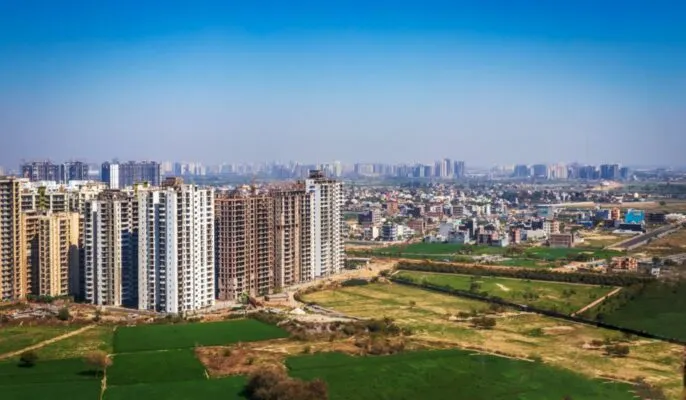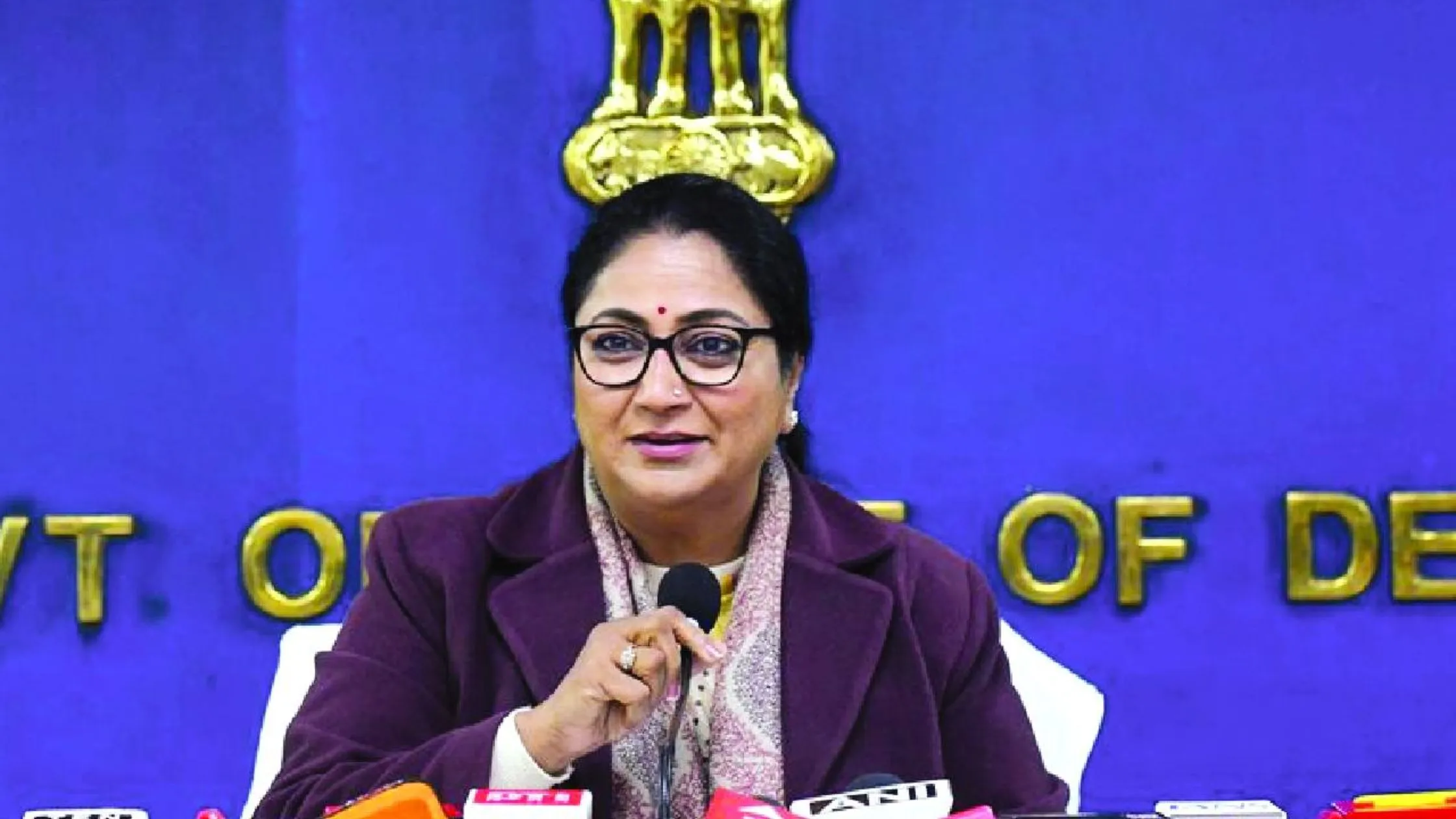Table of Content
▲- Authority’s Decision: A Crackdown on Long-Idle Plots
- Key Highlights from the 219th Board Meeting
- Developers Under Scrutiny for Unpaid Dues
- What the New Rule Means for Individual Plot Owners
- Enforcement and Penalties for Non-Compliance
- Adoption of Unified Regulations-2025
- Infrastructure and Civic Upgrades Approved
- Expert Reactions: A Push Toward Accountability
- Implications for Homebuyers and Developers
- Conclusion
In a major step toward enforcing land use discipline and recovering pending dues, the Noida Authority has decided to cancel allotment of residential plots that have remained vacant for over 12 years. The move marks one of its strongest policy actions in recent years, targeting both idle landholders and defaulting developers under the stalled housing projects policy.
The board’s decision also highlights the Authority’s focus on long-pending registries of 5,758 housing units held up due to unpaid dues. Together, these actions aim to restore accountability, curb speculative landholding, and fast-track long-delayed homeownership for buyers in Noida’s legacy housing projects.
Authority’s Decision: A Crackdown on Long-Idle Plots
The Noida Authority to cancel allotment of vacant plots reflects its growing intolerance toward speculative land ownership and non-utilization of allotted land. During its 219th board meeting, chaired by Uttar Pradesh Infrastructure and Industrial Development Commissioner Deepak Kumar, the Authority approved strict enforcement measures against allottees who have failed to begin or complete construction within 12 years of allocation.
Officials emphasized that the step is necessary to ensure land is used for its intended purpose residential development rather than being left idle for future resale gains. Vacant plots, they noted, not only violate allotment terms but also disrupt urban aesthetics and planned housing density.
Also Read: Delhi-NCR Tops Housing Price Growth at 24% in July–September Among Seven Major Cities
Key Highlights from the 219th Board Meeting
At the Authority’s 219th board meeting, several critical policy decisions were taken to streamline governance and improve compliance. The board approved:
- Cancellation of long-idle residential plots that have remained undeveloped for more than 12 years.
- Withdrawal of interest concessions granted earlier to defaulting developers under the ‘stalled legacy housing projects’ policy.
- A comprehensive review of dues recovery from developers who had availed relief but failed to meet repayment timelines.
The shift underscores the Authority’s intent to hold allottees and developers accountable for delays that have slowed housing delivery in key Noida sectors.
Developers Under Scrutiny for Unpaid Dues
According to Authority data, several developers continue to default on land cost payments even after receiving multiple concessions. Out of the total, 10 housing project promoters have paid nothing, 25 made partial payments, and 35 stopped after paying the initial 25%.
While registries for 3,724 apartments have been completed, registries for another 5,758 units remain stuck until pending dues are cleared. The 2023 rehabilitation policy allowed developers to pay 25% upfront and clear the balance in three years in exchange for interest waivers. However, with poor compliance across the board, the Authority is now set to revoke these waivers, tightening its stance against habitual defaulters.
The Noida Authority to cancel allotment of vacant plots and withdraw concessions is seen as a signal to developers that non-compliance will no longer be tolerated.
What the New Rule Means for Individual Plot Owners
Under the new rule, any allottee who fails to construct a house on their plot within 12 years will forfeit ownership rights. However, those currently under construction will get a six-month grace period to complete their projects and obtain completion certificates.
Officials revealed that at present, 17 plots have breached the 12-year threshold without valid completion certificates. Of these, nine have seen no construction at all and are likely to face immediate cancellation.
Out of nearly 30,000 individual plots allotted in Noida, about 1,500 show only partial construction typically a small room, kitchen, or boundary wall built solely to secure completion certification. These minimal structures often serve as placeholders for speculation rather than genuine residential use.
By enforcing stricter checks, the Noida Authority to cancel allotment of vacant plots intends to discourage such practices and ensure genuine end-use development.
Enforcement and Penalties for Non-Compliance
The cancellation directive applies uniformly to all allottees, irrespective of category or plot size. Those without valid completion certificates will face revocation of allotment rights, with no leniency for long-term non-compliance.
Officials stated that continuous monitoring is already underway, with several warnings issued over the past year to defaulting plot owners. However, in cases where progress is visible and delays are due to legitimate reasons, the Authority may consider extensions or phased compliance.
The broader message remains clear: Noida Authority to cancel allotment of vacant plots aims to end the practice of holding urban land purely for speculative purposes.
Adoption of Unified Regulations-2025
In a move toward greater policy coherence, the Authority also approved the adoption of Unified Regulations-2025, bringing uniformity in development norms across Noida, Greater Noida, and the Yamuna Expressway Industrial Development Authority.
This alignment will standardize allotment rules, payment structures, and approval timelines, ensuring consistent governance across the tri-city region. For developers and homebuyers, the harmonization means reduced confusion, faster clearances, and improved policy predictability.
Infrastructure and Civic Upgrades Approved
Beyond the land-use reforms, the Authority’s board also approved several civic infrastructure projects to enhance sustainability and transparency:
- Establishment of an integrated municipal solid waste management plant in Sector 145 (Mubarakpur), designed to process 300 tonnes of waste daily while generating power and fertilizer.
- Allocation of ₹86.67 crore for retrofitting sewage treatment plants in Sectors 35, 54, 123, and 168 to recycle wastewater for irrigation and improve urban sanitation.
- Launch of a mobile application to monitor progress of public infrastructure projects including roads, parks, and drainage systems—allowing citizens to track developments in real time.
These initiatives demonstrate the Authority’s dual focus on enforcement and infrastructure-driven urban development.
Expert Reactions: A Push Toward Accountability
Urban planning experts view the decision as a long-overdue corrective step. They believe that the Noida Authority to cancel allotment of vacant plots will act as a deterrent against speculative ownership, while encouraging serious investors and genuine homebuilders to participate in the market.
“Land in urban centers is a public resource. Keeping it idle for years undermines the city’s growth potential. This decision ensures land serves its intended purpose housing, not hoarding,” an industry expert noted.
Analysts further added that by enforcing deadlines and penalizing defaults, the Authority will not only improve liquidity but also enhance confidence among homebuyers waiting for property possession and registration.
Also Read: RBI Holds Repo Rate at 5.5%; EMIs Steady, Festive Buyer Sentiment Gets Boost
Implications for Homebuyers and Developers
For homebuyers, the decision promises faster completion and registry of stuck units in legacy projects. With developers compelled to clear dues or lose benefits, stalled projects could finally see renewed activity.
For developers, the message is one of accountability defaulting firms may face strict recovery actions, loss of concessions, or even project termination.
For the overall real estate ecosystem, Noida Authority to cancel allotment of vacant plots signals a shift toward cleaner, more transparent urban governance that prioritizes end-use housing over speculation.
Conclusion
The Noida Authority to cancel allotment of vacant plots marks a strong administrative and policy shift toward accountability and efficient land use. By targeting both idle allottees and non-paying developers, the Authority is attempting to revive stalled housing projects, restore buyer confidence, and ensure optimal use of urban land.
Coupled with the adoption of Unified Regulations-2025 and civic infrastructure investments, this crackdown sets the stage for a more disciplined and transparent real estate environment. As Noida continues its transformation into a structured and sustainable urban hub, stricter compliance today could mean a more equitable and buyer-friendly property market tomorrow.



_1771224636.webp)



Ans 1. The Noida Authority is cancelling allotments of residential plots that have remained undeveloped for over 12 years to discourage speculative landholding and ensure land is used for genuine residential development. The move enforces accountability among allottees and promotes efficient urban land use.
Ans 2. Currently, 17 plots have crossed the 12-year threshold without valid completion certificates. Among them, nine plots have seen no construction at all and are expected to face immediate cancellation. Additionally, nearly 1,500 plots show only partial or minimal construction, which may also come under review.
Ans 3. Owners who have started construction but not yet completed it will be given a six-month grace period to finish construction and obtain completion certificates. Failure to comply within this timeline may lead to cancellation of allotment rights.
Ans 4. The Authority has withdrawn interest concessions and payment relief previously granted under the stalled legacy housing projects policy due to poor compliance. Developers who fail to clear pending dues will lose their waivers, and their projects may face recovery actions or termination.
Ans 5. Registries for 5,758 units remain stuck because several developers have not cleared outstanding land dues despite receiving concessions under the 2023 rehabilitation policy. The Authority plans to revoke these concessions and enforce payments before allowing registrations to proceed.
Ans 6. Under the 2023 rehabilitation policy, developers were allowed to pay 25% of dues upfront and clear the balance within three years, with an interest waiver as an incentive. However, due to low compliance, this relaxation is now being rolled back.
Ans 7. The adoption of Unified Regulations-2025 will align development norms across Noida, Greater Noida, and Yamuna Expressway. This ensures consistent rules for plot allotments, payments, and project approvals leading to faster clearances and improved transparency for both buyers and developers.
Ans 8. Key projects approved include a waste management plant in Sector 145, sewage treatment upgrades in multiple sectors, and a mobile app for real-time tracking of civic infrastructure works such as roads, parks, and drainage projects.
Ans 9. For homebuyers, the Authority’s crackdown brings renewed hope for project completion and registry clearance. With stricter recovery measures against defaulting developers, buyers are likely to see faster possession timelines and increased accountability.
Ans 10. The decision reflects a policy shift toward disciplined, transparent, and end-use-driven development. By penalizing idle allottees and non-compliant developers, the Noida Authority aims to restore buyer trust, revive stalled housing supply, and promote sustainable urban growth.